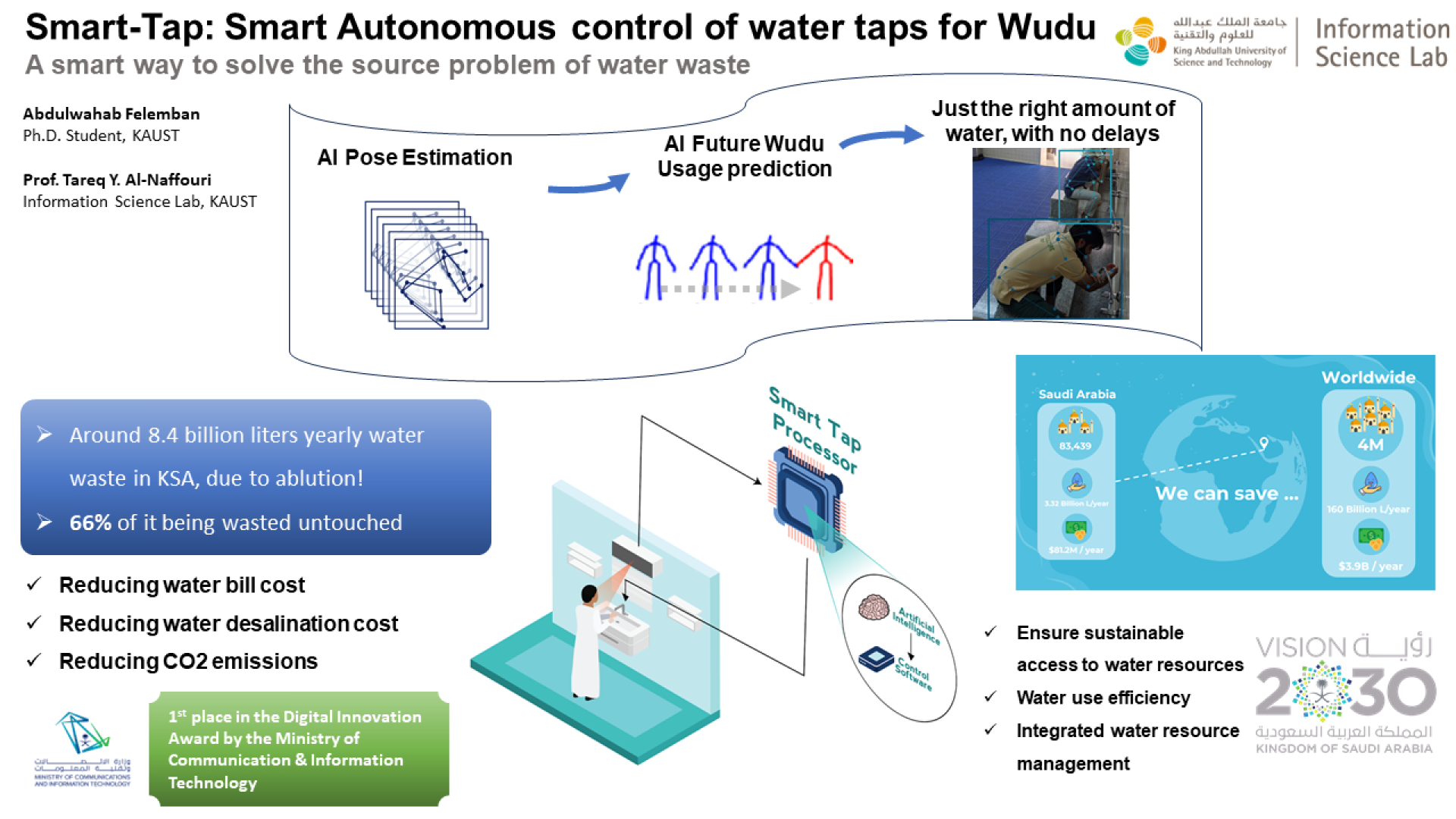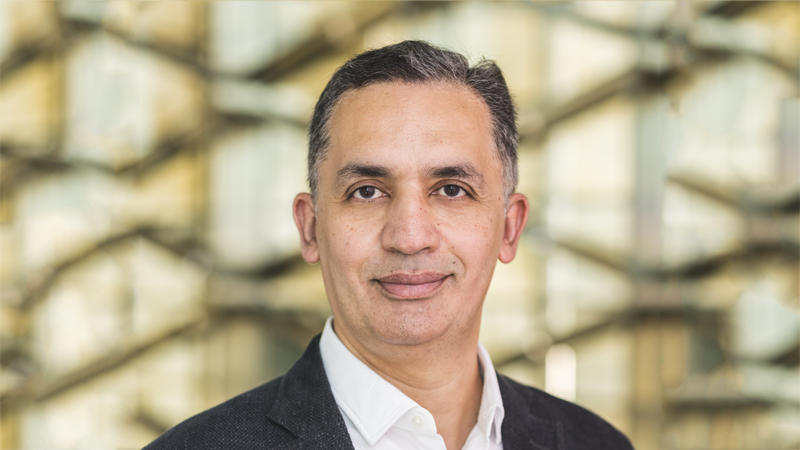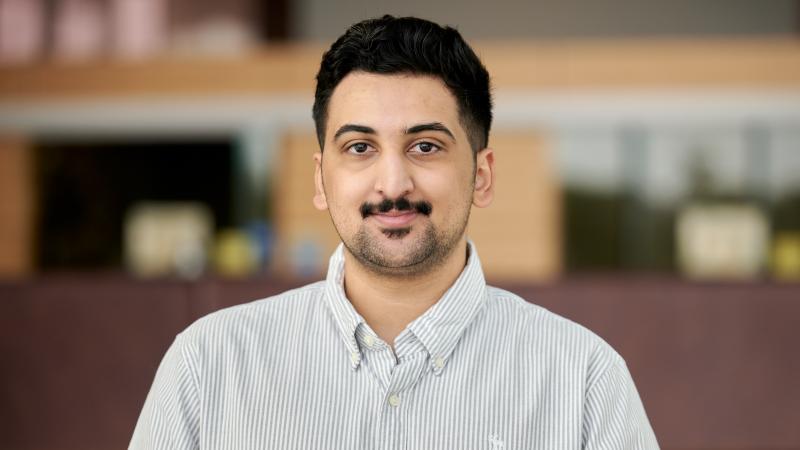Project Start Date
Project End Date
Water is a precious resource, especially in arid regions like Saudi Arabia, where every drop counts. Ablution, or Wudu, a vital ritual in Islamic practice, significantly contributes to water consumption. With millions performing Wudu multiple times a day, the cumulative water waste is staggering. Enter the Smart-Tap project, spearheaded by Abdulwahab Felemban, a Ph.D. student at KAUST, under the guidance of Prof. Tareq Y. Al-Naffouri from the Information Science Lab at KAUST. This innovative solution leverages artificial intelligence to optimize water usage during Wudu, promising substantial environmental and economic benefits.
The Problem: Wudu and Water Waste
In Saudi Arabia alone, approximately 8.4 billion liters of water are wasted annually due to inefficient Wudu practices, with 66% of this water going untouched. This waste not only strains the already limited water resources but also incurs significant costs related to water desalination and CO2 emissions from the energy-intensive processes required to supply clean water.
The Solution: Smart-Tap
The Smart-Tap project aims to address this pressing issue by developing an AI-powered autonomous control system for water taps used in Wudu. The system comprises several key components:
1. AI Pose Estimation: The Smart-Tap utilizes advanced AI algorithms to accurately estimate the user's pose during Wudu. This ensures that water flow is only activated when necessary, minimizing wastage.
2. AI Future Wudu Usage Prediction: By analyzing historical data and usage patterns, the system predicts future Wudu behaviors, allowing it to pre-emptively adjust water flow to provide just the right amount of water, with no delays.
3. Smart Tap Processor: Central to the system is the Smart Tap Processor, which integrates AI algorithms with control software to manage water flow efficiently. This processor ensures that water is dispensed precisely when and where needed, reducing unnecessary wastage.
Impact and Benefits
The implementation of Smart-Tap can lead to significant water savings both locally and globally:
- In Saudi Arabia: Potential savings of 3.32 billion liters of water per year, translating to $81.2 million in cost savings annually.
- Worldwide: Potential to save 160 billion liters of water per year, equivalent to $3.9 billion in cost savings.
The broader benefits of Smart-Tap include:
- Reducing Water Bill Costs: Lower water consumption directly translates to reduced utility bills for households and institutions.
- Reducing Water Desalination Costs: With less demand for water, the energy and financial costs associated with desalination processes are significantly reduced.
- Reducing CO2 Emissions: By cutting down on the energy required for water processing and supply, Smart-Tap contributes to lowering greenhouse gas emissions.
Recognition and Vision
The Smart-Tap project has already garnered significant recognition, winning the 1st place in the Digital Innovation Award by the Ministry of Communications and Information Technology of Saudi Arabia. This accolade underscores the project's potential to drive sustainable water management practices.
Aligned with Saudi Arabia's Vision 2030, Smart-Tap aims to ensure sustainable access to water resources, enhance water use efficiency, and promote integrated water resource management. By leveraging cutting-edge AI technology, Smart-Tap not only addresses a critical environmental issue but also sets a benchmark for innovative water conservation solutions.
Conclusion
The Smart-Tap project exemplifies how technology can be harnessed to solve real-world problems. Through AI-driven innovation, it offers a smart, sustainable solution to water waste during Wudu, promising significant environmental, economic, and societal benefits. As we move towards a more resource-conscious future, initiatives like Smart-Tap pave the way for smarter, more efficient use of our precious natural resources.


